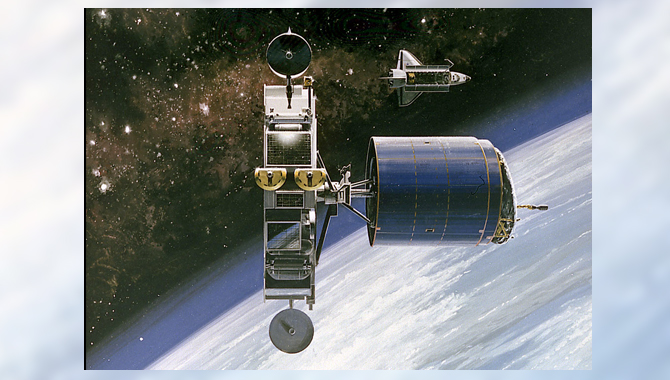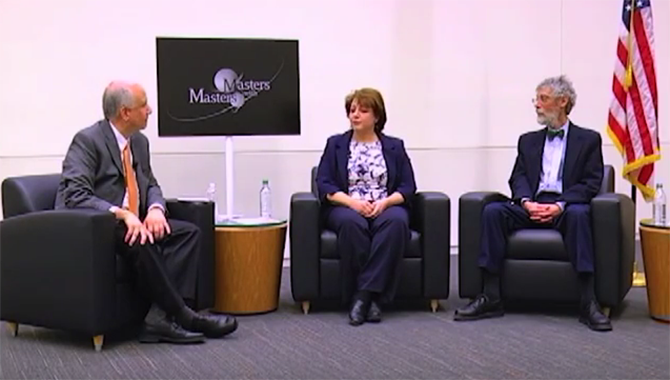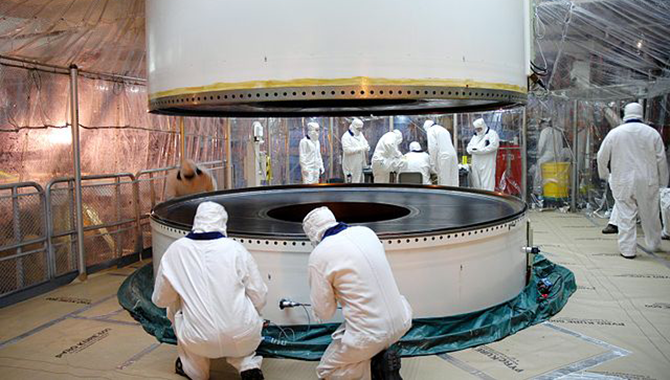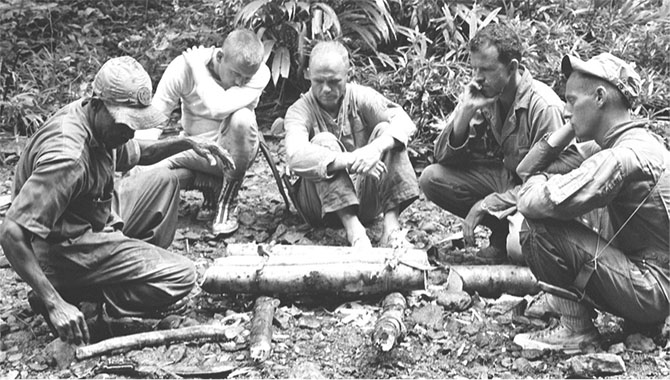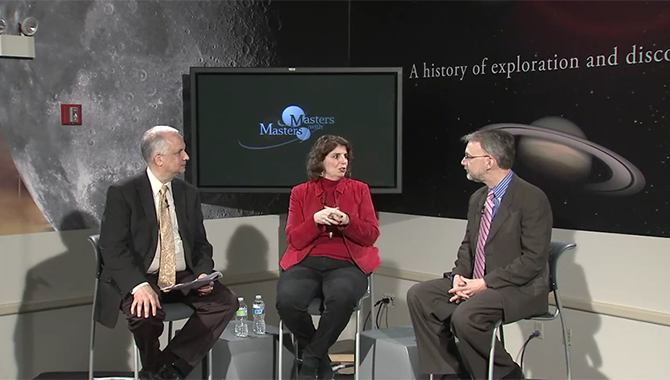
Chief Knowledge Officer Ed Hoffman moderated a lively discussion with two master practitioners at NASA’s Glenn Research Center (GRC), Diane Malarik, Senior Project Manager of the Space Flight System Directorate, and Michael Barrett, Deputy Chief for the Space Technology Project Office.
Photo Credit: NASA
Chief Knowledge Officer Ed Hoffman moderated a lively discussion with two master practitioners at NASA’s Glenn Research Center (GRC).
On December 15, 2014, Michael Barrett, Deputy Chief for the Space Technology Project Office, and Diane Malarik, Senior Project Manager of the Space Flight System Directorate, spoke with Hoffman on a variety of topics including how they have made career choices, how details are managed in large projects, and how to best handle risk and innovation.
With a half century of successful career choices between them, asking the question was inevitable: How did you get to this point in your career?
Malarik confessed: whenever a manager asked her if she would be willing to take on a new responsibility or role, she would reply in the affirmative. “I figured they knew more than I did, and that if they think I should do the job, then I should just say yes.” She further explained that this has allowed her to work on more challenging and complex projects. “So,” she concluded, “it’s been a good choice of mine to just say yes.”
Barrett was also candid, sharing that when someone told him that, when accepting a new role he would be confronted by a hard problem, he would always say yes. “I’m a sucker for that entrance line… if it looked like it was a challenge that couldn’t be done, that always would spark me.”
Describing his work on CoNNeCT (Communications, Navigation, and Networking reConfigurable Testbed) and other projects, Barrett illustrated one problem he and others faced as project managers of complex projects: “Every now and then you’ll encounter somebody that says, ‘Well, the project manager doesn’t need to understand the details,’ – true, right? We can’t understand all of it. But telling you as much as you can understand is a helpful thing to have, to enable you to better manage the project. So to pretend like it’s not worth trying to understand the details is a falsehood.”
Just as it is impossible to know all the details as a project manager, it is impossible to remove all possible risk. Malarik described the healthy tension of a project team managing risk, stating that it was good to match up workers with different opinions on risk-taking. She also outlined her unique responsibility as a project manager: “You need to make a decision, and of course, you have to make it with imperfect knowledge. Nobody has enough time to run all the tests and all the analyses you’d like, so you have to count on these individuals representing their areas and what their role is.” Malarik added, “(Y)ou need everybody you know to chime in… when nobody is completely happy, but everyone’s mostly happy, then that’s the right place.”
A reoccurring theme of the conversation was that of balance and where the tipping point is for action. Malarik spoke as a project manager about balancing innovation with possible failure: “You know I’m 80/20… if it’s wrong, we’ll figure it out and we’ll do something else. And so I think that as a project manager you have to be comfortable taking risks and be comfortable being wrong. I am okay being wrong. I think that’s a good way to balance it.”
Barrett added that many people think innovation and risk management are mutually exclusive. “The point is to help us be successful regardless of what level of risk we’re gonna accept,” he stated, “so having that conversation upfront with the key players, and folks that are gonna do it I think is important, but the main thing is that look,we manage risk on every project that we run whether it’s research or whether it’s a flight project. It’s just a different, right, set of acceptable risks or a different level of risk that we take overall… they’re not mutually exclusive… (we) do risk management on everything that we do.”
Malarik concluded by sharing her experiences with one of her father’s axioms: You can’t win with scared money. “If you’re afraid to double down when you’re supposed to double down or you’re afraid to split you know aces and eights, because it puts out twice as much money, you are not going win… so take the risk and most of the time it’s gonna have a payoff, and the few times that it doesn’t… that’s the cost of doing business.”
View this Masters with Masters event on the APPEL YouTube channel.
To watch previous Masters with Masters videos, please visit the APPEL YouTube channel.
Chief Knowledge Officer Ed Hoffman moderated a lively discussion with two master practitioners at NASA’s Glenn Research Center (GRC), Diane Malarik, Senior Project Manager of the Space Flight System Directorate, and Michael Barrett, Deputy Chief for the Space Technology Project Office.
Featured Photo Credit: NASA






